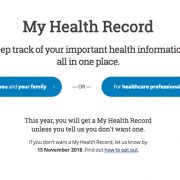How much is too much? The question for our representatives.
By Alexander Corne
How much freedom is enough? How much time spent locked down is enough? How much money is enough? How much debt is enough?
Not lightweight issues. Yet Australians have barely spoken up as liberty, rights of free assembly and economic welfare have all been eroded, without any public debate.
The ‘national cabinet’ has seen fit to ban association of more than two people. Entire sectors of our economy have been outlawed, overnight.
While it is frightening to think that governments, as well meaning as they may appear, can take so much freedom away with so little debate, discussion or explanation, what is even more terrifying is the precedent that the public has set in its dumb, placid and feeble acceptance of these curbs on our way of life.
How is it possible that a mature democracy is allowing itself to be trampled with absolutely no critical commentary? Where are the protestations? Why are there no crowds in the streets (even spaced out at 2 m apart)? Where are the calls for a full explanation of the risks?
You would have to wonder what the government knows about this disease that it’s not letting on. You also have to hope that the community health advice they are heeding is balanced with an understanding of how a functioning economy is as equally essential.
After all, around 1200 Australians are killed each year on the roads, and yet there’s no radical spur-of-the-moment plan to seize our wheels.
Have Australians become so lobotomised by social media, tabloid media and reality TV that they have lost all sense of the values of life in a free country, in a democracy? The steps taken so swiftly by state and federal governments would make George Orwell spin in his grave.
And now we’re all safely locked down in our domestic bunkers, what happens when we run out of small odd jobs to do, walls to paint, grass to cut, pictures to hang, fights to have with our spouses and children?
How long can the government expect to keep us bottled up? How many women will die in as a result of domestic violence (already obliquely referred to by the PM) having been imprisoned in a marital pressure cooker that just explodes?
What will happen after Easter, when the kids should be back at school, and the money has run out? Will the government continue to own us. Shouldn’t we have a say?
Yes, we should take prudent steps to protect ourselves from this pandemic. And the evidence is beginning to show that such steps are working. But, we cannot afford to let this massive disruption go on until the risk is absolute zero.
Health infrastructure preparations have been made, some cautionary measures should remain and a sensible balance must be struck. It’s time to ask legitimate questions about how long all this should last?
These are questions that businesses, of all size and nature, should be directing to their political representatives, at both state and federal level.
We like to call ourselves the lucky country. If we blow our luck with a massive, timidity induced, self-inflicted wound we could quickly be reduced to a mere mendicant client of China Inc.
RMK+A is highly experienced in government relations and in assisting businesses and organisations in engagement with policy makers.




